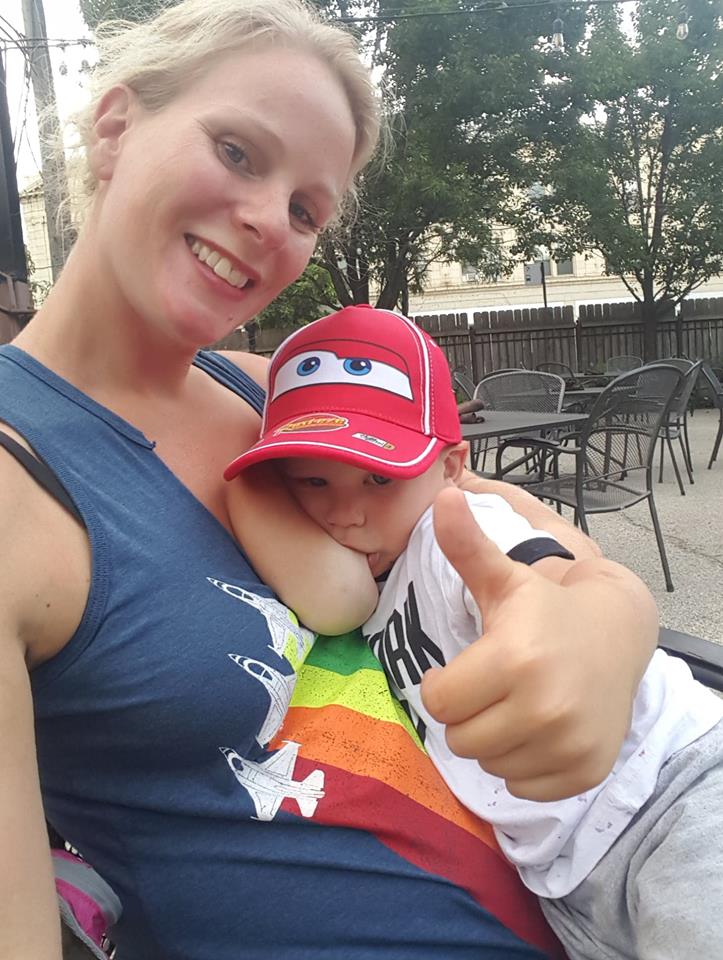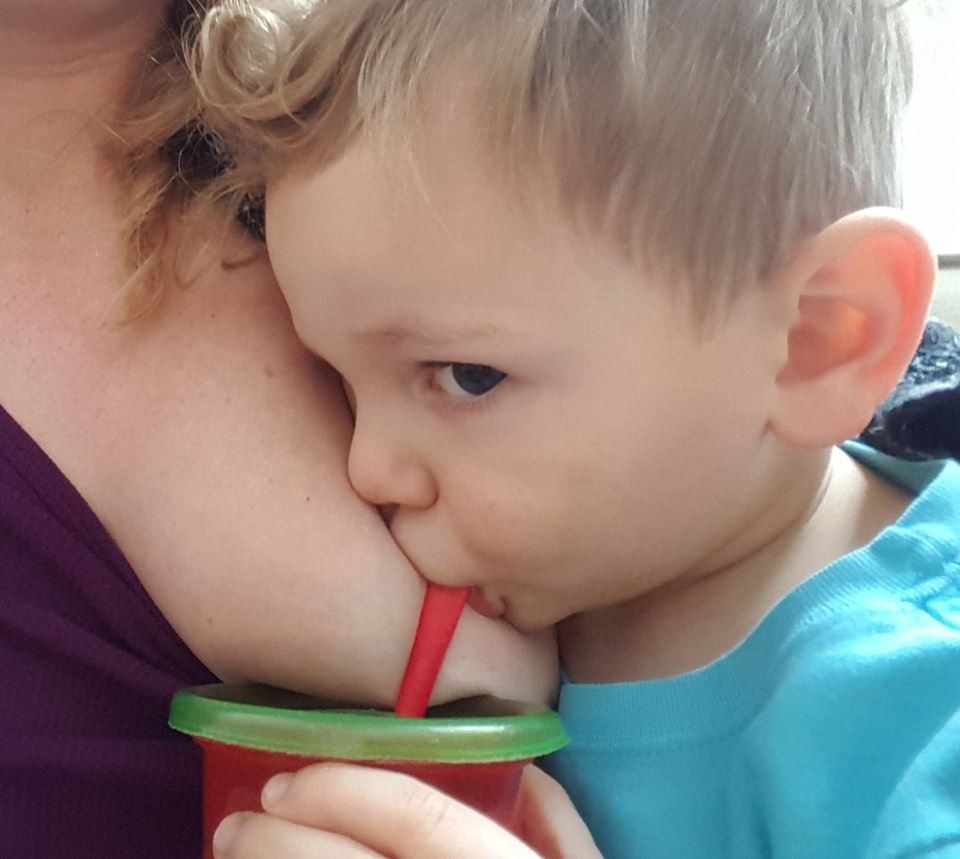By Wendy Wisner, IBCLC
Every breastfeeding mama is going to receive criticism at some point or another. Whether it’s about breastfeeding in public, how frequently you’re breastfeeding, your reluctance to introduce a bottle or supplement with formula, or whatever else.
BUT, if you end up breastfeeding beyond a certain number of months – or god forbid, a year or more – you are definitely going to get at least a little judgement. Most likely, a whole lotta judgement.
It can really freaking suck. Most of it is ignorance. People just don’t know that breastfeeding for 12 months or more is not only beneficial, but absolutely harmless to a child. Most have never even seen a child of that age breastfeed and it looks foreign and strange to them.
Of course, some people are just total jerks about it, and will throw their ill-informed, cruel comments all over your life. It totally sucks and I feel sorry for any mama who has experienced that level of assholery.
How long you breastfeed is a decision entirely between you and your child. No one else. Still, no matter how confident you may be in that fact, it can still be really difficult to deal with the comments, whether mild critiques or the nastiest ones out there.
Don’t worry, though. I’ve got you covered. Here are 8 tried and true ways you can deal with criticism about extended breastfeeding.
- Offer them good, hard data on the benefits/harmlessness of extended breastfeeding.
Kellymom.com has a fantastic fact sheet offering great info about the benefits of extended breastfeeding (including the fact that it still offers excellent nutrition and health benefits for your child). It also has some sourced info about the fact that breastfeeding past 12 months will not harm your child in any way.
- Tell them your doctor recommends it.
OK, your doctor may not directly recommend it (there are some doctors who do, so it’s worth seeking them out). But you can always say that. Not only that, but both the Academy of American Pediatrics (AAP) and the World Health Organization (WHO) have strong statements in favor of breastfeeding past 12 months old. So you can always point to that.
- Offer them your best “resting bitch face.”
Ok, this is a joke. Kind of. But seriously, if someone says something about your breastfeeding relationship that makes you uncomfortable, you can choose to ignore it, distract away from it (“Ooops! My child needs me to tie their shoe!”) or whatever works for you. And bitchy comments especially deserve a bitchy reaction. No guilt there.

- Manage your feelings about it.
When someone is criticizing something as personal and sacred as your breastfeeding relationship with your child, it is so easy to let you strong feelings get the better of you. But if you can, take a deep breath first, acknowledge your feelings, and tell yourself that you have a choice in how you react here. Yes, this person may be a close friend or family member, but it’s just an opinion. You can choose to ignore it and move on with your life. Easier said than done, but it’s worth a try.
- Ask them more specifically what makes them uncomfortable about it.
Sometimes this can really help. Maybe they are just concerned that nursing past 12 months is bad for a child’s teeth (it’s not, but lots of people don’t know that). Maybe they don’t have concerns personally, but they are worried about what others in your community might think. Realizing that someone’s concerns are less global than you initially thought might be an opening for a really helpful dialogue.
- Tell them that their critique is unacceptable.
If someone is really crossing a line, you have the right to tell them to just stop. Seriously. And if they don’t, you might need to consider what role you want someone like that to have in your life. Friends or family who really cross boundaries with you can be problematic in other areas of life – and really, someone who can’t listen openly to your wishes is not someone whose advice you should take to heart.

- Find like-minded friends to commiserate with.
Breastfeeding a toddler or a small child is a very particular experience, and one meant to be shared with other mama friends. So find your tribe, whether it’s online, at a breastfeeding support group, or elsewhere. This is going to help you handle critique to,o because all of your extended breastfeeding mama friends will have dealt with it too – and they can offer helpful advice and a good listening ear.
- Do it anyway.
I breastfed my two boys for a very long time – much longer than the socially acceptable norms. Did I get critiqued? Hell yes I did. Did it bother me? Definitely, at times. But the good news is that at a certain point, most of the nursing happens at home behind closed doors, so no one even knows you are breastfeeding your 2, 3, or 4 year old.
But most importantly, despite the naysayers – and the voices in my own head that told me I should just stop already – I did it anyway. Because my children needed it. Because I felt comfortable doing it. Because it just felt right. To both of us.
Looking back, I am so glad to have nursed my kids for as long as I did. Anything anyone thought or said doesn’t matter one bit now. All I have left are the cherished and sweet memories.
Wendy is the mom of two awesome boys, a freelance writer and editor, and a lactation consultant (IBCLC). Find her on the web at www.wendywisner.com.












